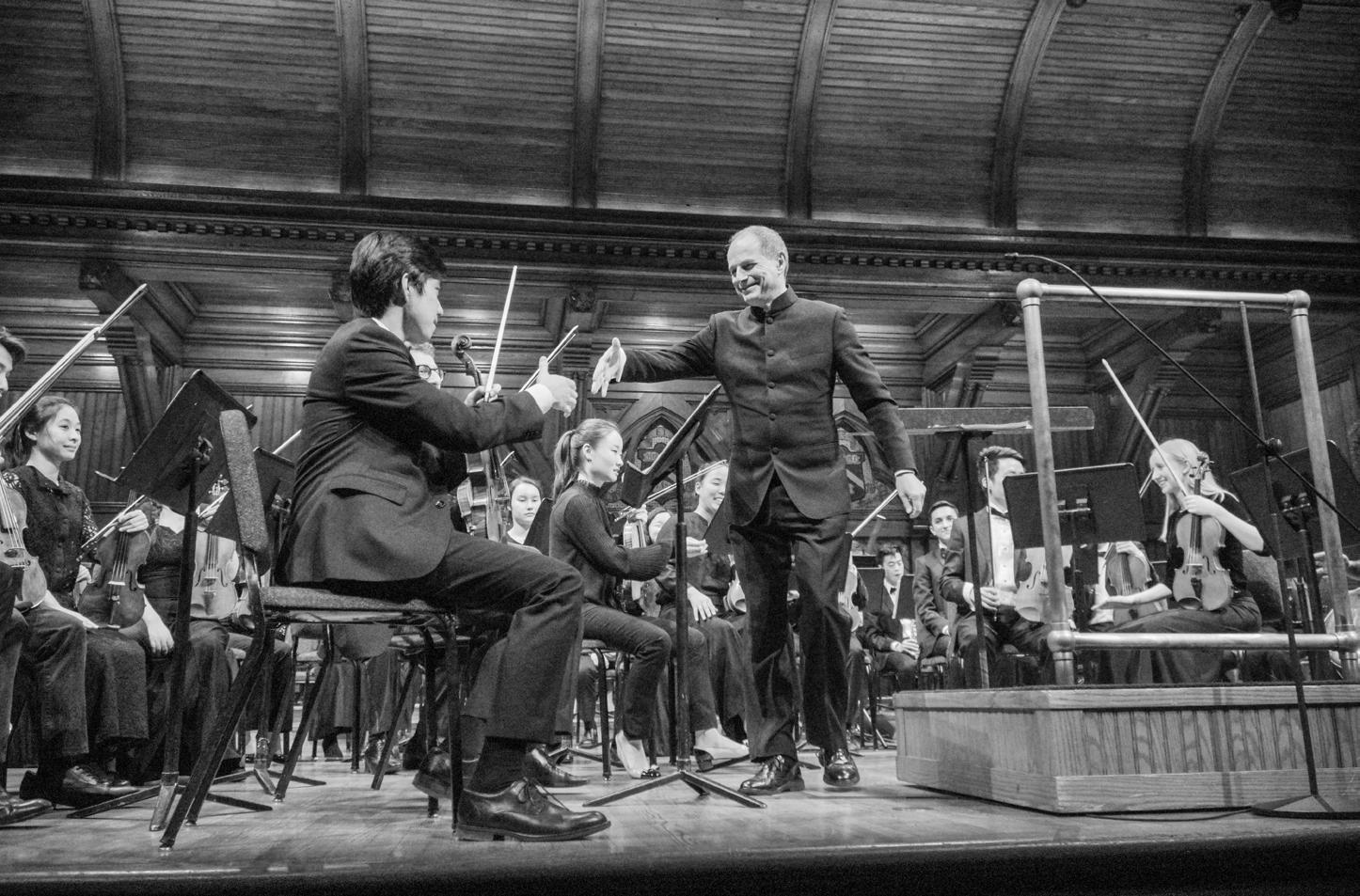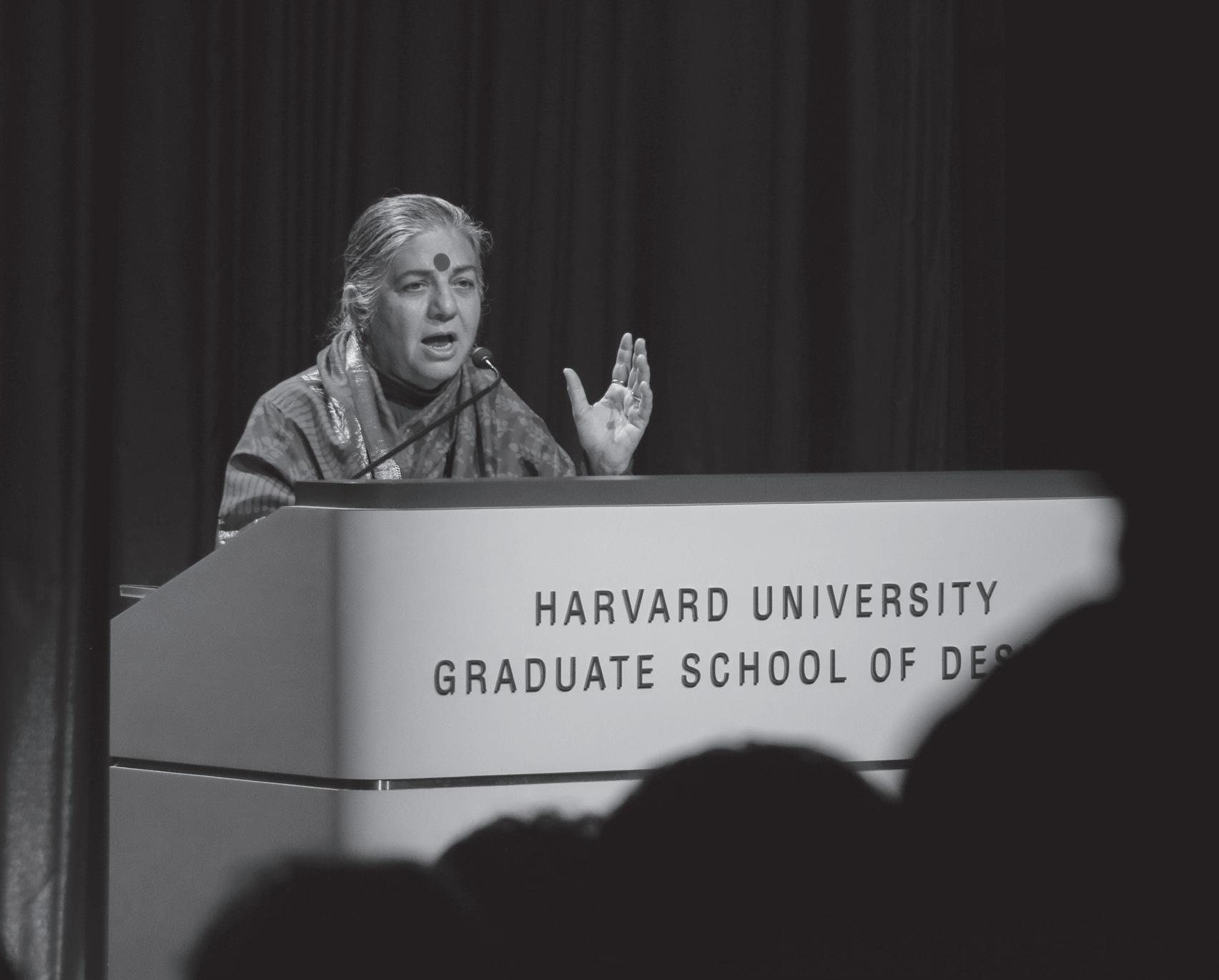
12 minute read
Editorial
THE CRIMSON EDITORIAL BOARD
Two years have passed since Harvard College Faith and Action was put on administrative probation after its leadership was found to have pressured a bisexual assistant Bible course leader to resign after discovering her same-sex relationship. Soon after, the College stated that HCFA would have to sever its ties from its parent group Christian Union in order to regain its status as a recognized social organization on campus.
As it turns out, HCFA did not sever such ties. It was recently reported that HCFA continues to receive Christian Union funding in the form of staff salaries, office space, food, and scholarships for retreats. It was also reported that Christian Union gave the student group $796,180 between July 2017 and June 2018 while its year-long probation period was still underway.
This isn’t a new problem. A year ago we strongly criticized how the College’s poor enforcement of HCFA’s probation. It appears that not much — read: nothing — has changed since then. The fact that HCFA has still not severed its ties to Christian Union underscores the broadly felt impotence of the Dean of Students Office as an enforcing body.
We reaffirm our judgment that HCFA was wrong to discriminate against its membership on the basis of sexual orientation and that they should accordingly face the stated punishment. But it’s the College’s, and in particular the DSO’s, job to enforce these sanctions. At the point where HCFA has carried on without issue for two years, it’s hard to see such a lack of punishment as anything but Harvard’s fault.
As we have written before, it is ludicrous to believe that the sanctions against unrecognized single-gender social group members — spread out across all of the many recognized organizations on campus — would be enforced effectively (or at all) given how the probation of HCFA has been conducted by the DSO. In order to gain necessary credibility, the College must hold itself accountable for its incompetence in enforcing its probations and ensure that any violation of rules meets its stated consequences.
The College’s failure to enforce its probation of HCFA is likely connected to a statement made by Roland S. Davis, who then served as Associate Dean of Students for Diversity and Inclusion, that the College is hesitant to punish HCFA because it does not want to be seen as waging war on Christianity. While we recognize that Harvard does not want to be seen as an enemy of religion on campus, the College must apply its rules evenly and fairly, and we maintain that the freedom of one group on campus cannot come at the expense of another’s. That being said, we value and appreciate religious groups having space on campus, and it is important that the College supports their presence.
This support, however, cannot get in the way of the College’s ability to enforce prohibitions on religious groups that breach student organization policy.
HCFA should face the punishment it was given despite the time that has passed since its demonstrated discrimination and policy breach.
To make that happen and to prevent future cases like this, Harvard should take full responsibility for failing to enforce its measures against HCFA, as well as social groups on campus, and it should move to improve the efficacy and transparency of implementing such punitive measures in the future. DSO’s Conviction Problem
This staff editorial solely represents the majority view of The Crimson Editorial Board. It is the product of discussions at regular Editorial Board meetings. In order to ensure the impartiality of our journalism, Crimson editors who choose to opine and vote at these meetings are not involved in the reporting of articles on similar topics. The fact that HCFA has still not severed its ties to Christian Union underscores the broadly felt impotence of the Dean of Students Office as an enforcing body.
Submit an Op-Ed Today!
The Crimson @thecrimson
OP-ED
HKS Program Change Singles Out Fellows from Developing Countries
It comes as no big surprise to many students at Harvard University that the administration has come under increased scrutiny by the United States Department of Education for a lack of transparency with regards to funding, or now, two leading advisory board members have resigned from the Institute of Politics amid tensions within the Harvard Kennedy School.
After just one semester at Harvard, I’ve witnessed a student union strike for fair work conditions such as pay equity, health insurance, and better protections against harassment and discrimination, and protests calling for Harvard’s leadership in divesting from fossil fuel investments for climate justice. To add to this list of moral grievances, the Kennedy School is undermining a pivotal component of the Mid-Career Masters in Public Administration program, exclusively targeting students from developing countries — almost half the entire cohort.
At stake is an integral part of the MC/ MPA program, the Mason Fellows Summer Seminar. The Edward S. Mason Program, designed for students from developing countries, is a big deal; it boasts a prime minister, presidents, and leaders of multilateral institutions among its alumni. It’s the program that brought me to the Kennedy School.
The two-week Mason Fellows Seminar has been hosted upon the fellows’ arrival at Harvard and orients us before a subsequent five-week MC/MPA Summer Program, which includes the larger MC/MPA cohort, including students from developed countries. Quietly, however, the HKS Five-Year Academic Calendar has been updated — no longer showing the Mason Fellows Seminar in Summer 2020. Instead, the Seminar appears to have been swapped to a mere week-long “Fall Launch,” and relegated, like an afterthought, to the end of the summer. This is not what’s best for the integrity and excellence of Harvard’s MC/MPA program.
The Mason Fellows Seminar is an By DAVID A. DE BOLD
incredibly valued period allowing students coming from some societies, where there is no freedom of speech nor right to assemble, an opportunity to find their voice. Mason Fellows can come from autocratic regimes, places where electricity and drinking water are not available 24 hours a day, and in some cases, places where having certain sexual orientations is a crime punishable by death. The opportunity for fellows to come together before the academic year begins is invaluable for both their experience and the campus community to which they contribute.
My Mason summer experience helped me cultivate relationships, exposed me to different backgrounds and experiences, and introduced me to public policy issues from leading Harvard professors. By contrast, the twice-aslong, cohort-wide MC/MPA Summer Program that followed was banal with the majority of the time spent on introductory subjects in economics and statistics, much of which could have been delivered through HarvardX, the open online learning platform. In fact, one could argue using HarvardX would allow more of the Mason Program pedagogy and benefits to be integrated into MC/MPA summer program.
In the same week that the Kennedy School announced it was searching for ways to “make progress in the areas of diversity, inclusion and belonging,” administrators signaled no interest in changing their course on the MC/MPA summer program changes. This was despite a meeting MC/MPA student leaders held with administrators, including Kennedy School Dean Douglas W. Elmendorf, to initiate a process of engagement to best inform how all MC/MPA summer programming could be improved.
The irony that, at a time when the Kennedy School searches for ways to make progress in belonging, inclusion, and diversity on campus, an exemplary program specifically designed to foster these values — not to mention paid for by Mason fellows themselves — has been gutted, is not lost on me. Actions taken by the Kennedy School suggest what we’re hearing is just empty rhetoric. The proposed changes in MC/ MPA summer programming are actually a step backward for diversity and inclusion and demonstrate Harvard’s inability to navigate diversity settings effectively.
Such apathetic decisions towards the Mason Program which values diversity and inclusion are not those of the Harvard I had envisioned when I was writing my application. I envisaged a scholastic year under the tutelage of leading thinkers and subject matter experts in the international development and public policy space.
I envisaged myself learning new and innovative methods to analyze and propose solutions for today’s issues. I envisaged a cadre of fellow students with a strong desire to learn and who come from varied backgrounds and experiences. I did not envisage being enrolled in a scholastic enterprise that only professes the merits of transparency and open data, participatory and inclusive processes to manage change, and using information and knowledge to inform decisions, while not actually practicing them.
My time at Harvard will come to an end in May, and without action to reverse course by the Kennedy School Administration, this will be the last MC/MPA class benefiting from a Mason cohort to benefit from the two-week induction period. Established some 60 years ago, the Mason Fellowship sought to bring developing country leaders to Harvard to “address the world’s most compelling development challenges.” Halving the introductory seminar undermines that goal. Perhaps in some areas Harvard can walk-the-walk, but when it comes to issues like equity, diversity, transparency, and informed, inclusive decision-making you should only do as Harvard teaches, not as it practices.
COLUMN
Unpacking Our Definition of ‘Black’
Marcus B. Montague-Mfuni AFRICAN, AMERICAN
How many times have you heard something like that? I have become so deeply accustomed to it. I hate it. I have heard it in South Africa. I have heard it here in America. I have heard it from my own mouth — indeed, I am guilty too. You know where I haven’t heard it from much? White people. This is black people limiting black people, and I can’t comprehend why we do it. There are as many ways to be black as there are black people. And I really don’t think I can say that enough.
“You’re black and you listen to THIS music? Wow.” But who gave anyone the power to define what it means to be black? The black musical tradition is certainly rich.
There’s enough jazz, rap, hip-hop, and R&B to fill your ears and soul for many lifetimes. But if a black person wants to slap on some country, who are you or I to tell them that we no longer share an identity because of it?
I don’t care if you, or even most of us, don’t like the music. I don’t care if a genre has even explicitly excluded black people from itself. We still don’t get to make that statement, and let me tell
you why ...
There are as many ways to be black as there are black people.
“You’re black and you can’t even speak your language? Mxm.” But who gave anyone the power to define what it means to be black? Yes, South Africa has many languages to choose from. I miss them all, some days out here I really wish I couldn’t understand everyone’s conversation. But simply because someone has dark skin and never learned their native language does not entitle us to strip them of their heritage. I don’t care if it signals a lack of respect. I don’t care if you feel like that person is trying to distance themselves from their culture. We have no right to do that, and I will tell you why ...
There are as many ways to be black as there are black people.
“A black Republican? That sounds like an oxymoron.” But who gave anyone the power to define what it means to be black? Granted, the vast majority of black Americans are not Republicans. I am definitely a part of the roughly 84 percent of us who aren’t right now.
But who gave the 84 percent of us the power to deny the identity of the rest. I don’t care if the policies that they support may hurt us or themselves. I don’t care if they are being used as tools by other politicians to justify their racism at times. We
still don’t get to make that statement, and I. Will. Tell. You. Why.
THERE ARE AS MANY WAYS TO BE BLACK AS THERE ARE BLACK PEOPLE.
“How are you gonna be black and have hair like ... that?” But who gave anyone the power to define what it means to be black?! If it is natural and curly, someone will think your hair looks “nappy.” If it is not natural and straight, someone will think that you don’t love yourself. Heck, if it is naturally straight, you know someone is still going to persecute you. If it is uncombed, someone will think you look like a “savage.” If it is combed, someone will still think that you don’t love the way God made you.
Lord knows that as a man I cannot even begin to process what it is like for black women, but I know that there is no such thing as pleasing everyone. And that is just hair. I don’t even have to bring in the light-skinned, dark-skinned dynamic or the mixed, non-mixed angle for you to get my point which is that: I don’t care what you think; no facet of appearance gives any of us the right
to strip the identity of anyone else. And do I still even need to tell you why? … I understand the apprehension around expanding what it means to be black. I get that if we expand what we consider black, we expand that to some things or people that we may not want to consider part of the same group as ourselves. But that is not a choice we get to make.
We don’t get to limit or take away identity. Haven’t we all felt enough of what being stripped of an identity can do to a person? I certainly think we have.
So who am I to define what being black is? No one. So I won’t. And who are you? No one. But I can no longer tolerate the limiting of that definition by any individual. There are as many ways to be black as there are black people.




